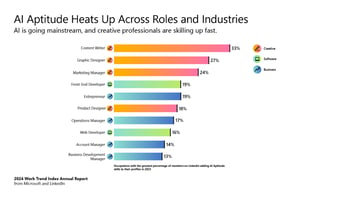In a bustling city filled with towering skyscrapers and endless construction zones, lived Susan,...
The Rewritten Fable: The Tale of Two Territory Managers
The Setup That Changes Everything
Last quarter, two SMB owners—Carla and Dave—faced the same brutal reality: fuel costs up 35%, customers demanding real-time updates, and new competitors offering same-day service guarantees.
Both had successful field service companies. Both had experienced territory managers. Both needed to adapt fast. But only one was prepared.
Carla's Experiment-First Approach
Six months earlier, Carla had introduced three simple words to her team: "Let's try something." Her territory manager Luis embraced this mindset completely. When dispatch took too long, he didn't complain; he tested an AI scheduler for two weeks. When customers called asking for updates, he piloted automated SMS notifications with 20 clients.
Not everything worked perfectly:
- The first AI tool miscalculated routes (Luis switched to a better one)
- Early automated messages confused some customers (he refined the language)
- A digital inspection app crashed twice (he found a more reliable alternative)
But here's what happened: Each small experiment taught Luis something valuable. By the time the market shifted, he had battle-tested solutions ready to scale.
Results after 6 months:
- 28% reduction in missed appointments
- Customer satisfaction scores up 15%
- Techs completing 3 more jobs per day
- Zero overtime needed during the busy season
Dave's "Proven Methods" Strategy
Dave believed in discipline over experimentation. "We've got systems that work," he told his manager Joe. "Let's perfect what we have before chasing shiny objects."
Joe stuck to the fundamentals:
- Hand-drawn route maps
- Phone calls for customer updates
- Paper inspection forms
- The same scheduling system they'd used for five years
When other companies started experimenting with new tools, Joe was skeptical: "We don't have time to mess around like that. Our customers expect reliability."
When Reality Hit
Then fuel prices spiked. Customer expectations shifted overnight. New competitors started stealing clients with superior digital experiences.
Carla's team barely noticed. Luis had already optimized routes, automated communications, and streamlined processes. His team moved faster, communicated better, and kept customers happier—even in the chaos.
Dave's team? Overwhelmed. Techs working longer hours. Customers complaining about lack of updates. Three major clients switching to competitors.
In a desperate team meeting, Dave asked: "How are they staying ahead of this?"
His most experienced tech spoke up: "They've been preparing. We've been assuming tomorrow would look like yesterday."
The Turning Point
That's when Dave realized his mistake. The issue wasn't about individual tools—it was about organizational learning speed.
Carla had built a team that adapted continuously. Dave had built a team that resisted change until change was forced upon them.
Dave immediately shifted his language. Instead of "Let's stick with what works," he started saying, "What should we test this week?"
Within 30 days:
- Joe piloted route optimization software (20% fuel savings)
- They tested automated customer notifications (90% positive feedback)
- Two techs experimented with digital forms (25% faster job completion)
The gap began closing, but Dave learned a hard lesson: In fast-moving markets, the team that experiments early wins later.
The Real Lesson
This isn't a story about technology. It's about creating a culture where small, safe experiments happen constantly; before you need them.
The word "experiment" itself removes pressure. It implies learning, not perfection. When people know it's safe to try and fail, they stop waiting for permission and start solving problems.
Three questions every SMB owner should ask:
- When did your team last try something completely new?
- What would happen if a small experiment failed?
- Are you building a team that adapts or reacts?
The companies that survive market shifts aren't the ones with the best initial strategy. They're the ones that learn and adapt fastest.
At Coach.Win, we help SMB owners turn curiosity into competitive advantage through AI-powered experimentation frameworks that make adaptation automatic, not accidental.
Ready to build an experiment-first culture in your field service business? Let's explore what's possible.




